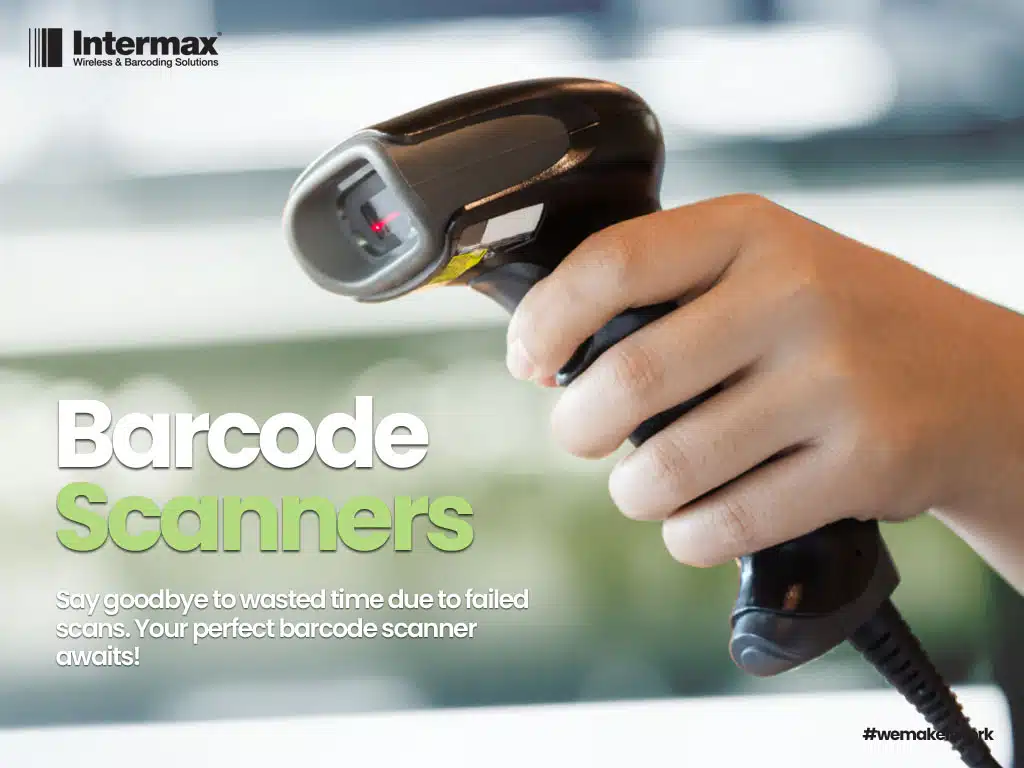Reliable Barcodes Scanners for Optimized Inventory Management
Reliable Barcodes Scanners for Optimized Inventory Management
Blog Article
Picking the Right Barcode Scanner for Your Service Requirements
Picking the proper barcode scanner for your company requires a nuanced understanding of your certain functional demands and ecological problems. Aspects such as scanner kind, speed, and compatibility with existing systems play a critical function in determining the right selection.
Understanding Barcode Scanner Kind
When it pertains to selecting a barcode scanner, recognizing the different kinds available is vital for meeting particular business requirements. Barcode scanners can be categorized into a number of kinds, each made for various applications and settings.
Fixed-mount scanners, on the various other hand, are developed for high-volume scanning applications, commonly found in assembly lines or checkout counters. These scanners are mounted in a fixed placement, allowing for rapid scanning of several products in succession.
An additional kind is the mobile computer system, which incorporates scanning capacities with computing power. These gadgets are ideal for field operations or stockroom management, allowing data collection and real-time supply monitoring. In addition, there are commercial scanners that are built to endure rough settings, such as severe temperatures or exposure to dirt and moisture.

Secret Attributes to Consider
What necessary functions should companies prioritize when choosing a barcode scanner? Scanning speed is important, as faster scanners boost functional efficiency, particularly in high-volume settings. The scanner's ability to read various barcode styles is also essential; guarantee it supports preferred types like QR codes, UPC, and Code 128 to fit diverse supply things.
Toughness is another essential feature, particularly for companies in tough setups. Look for versions that are built to stand up to drops, dirt, and wetness. In addition, take into consideration the connectivity options offered; whether you favor USB, Bluetooth, or Wi-Fi, the best connection can enhance integration with existing systems.

Evaluating Your Organization Environment
To effectively select a barcode scanner, businesses have to take supply of their specific operational setting. This assessment includes examining the physical format of the work space, the nature of the items being checked, and the regular conditions under which scanning takes place. For example, a retail setting may need portable scanners that can rapidly process deals at the checkout, while a storehouse setup might benefit from ruggedized scanners developed to sustain harsher conditions.
Furthermore, take into consideration the volume of scanning needed. High-throughput atmospheres may necessitate advanced scanning modern technologies, such as fixed-position scanners or smart phones that can run efficiently in fast-paced scenarios. The combination capacities with existing inventory management systems additionally his comment is here play an important role; make sure the chosen scanner can flawlessly get in touch with software program systems in operation.
Furthermore, evaluate the potential for development and scalability. A scanner that meets present demands could not be sufficient as organization expands. By thoroughly analyzing these aspects, businesses can pick this page a barcode scanner that not only satisfies instant needs but also sustains lasting operational efficiency and flexibility. This strategic approach eventually adds to smoother procedures and boosted productivity.
Budgeting for Your Scanner
Having actually evaluated the operational atmosphere and recognized the particular demands for a barcode scanner, the next action involves cautious budgeting to make sure a clever financial investment. Developing a budget plan starts with identifying the general costs related to the scanner, including first acquisition rate, functional expenses, and possible upkeep fees.
When selecting a barcode scanner, take into consideration the variety of available alternatives, from portable devices to fixed-position scanners, as costs can vary considerably. It is vital to stabilize expense with capability; choosing a more affordable version may lead to boosted operational inefficiencies if it does not fulfill your service demands.
Along with the hardware, consider prices related to software application, training, and potential upgrades. While it could be alluring to reduce in advance expenditure, investing in a quality scanner that aligns with your Check Out Your URL functional demands can yield long-term savings via improved effectiveness and minimized downtime.
Lastly, consider the total cost of possession, which includes the scanner's life expectancy and prospective resale worth. By thoroughly preparing your budget plan, you can make sure that your investment in a barcode scanner will boost your functional productivity and monetary performance.
Combination With Existing Solution
Integrating a barcode scanner with your existing systems is vital for maximizing its performance and making certain smooth operations. barcodes scanners. A well-integrated scanner enhances process performance, reduces mistakes, and accelerates information processing. When selecting a barcode scanner, take into consideration compatibility with your existing software program and hardware facilities, including your supply monitoring systems, point-of-sale (POS) systems, and business source preparation (ERP) remedies
Examine whether the scanner uses common methods such as USB, Bluetooth, or Wi-Fi, which can promote very easy assimilation. Furthermore, analyze whether the scanner's software uses APIs or SDKs that allow for personalization and assimilation with proprietary systems. This is specifically vital for services with one-of-a-kind functional requirements.
Additionally, consider the scalability of the scanning option. As your company grows, your systems must be able to accommodate added scanners and handle increased information volumes without substantial reconfiguration. Inevitably, purchasing a barcode scanner that seamlessly incorporates with your existing systems will yield long-lasting advantages, improving accuracy, performance, and overall performance within your procedures. Take the time to extensively analyze your combination requires prior to making an acquisition decision.

Conclusion
In final thought, selecting an ideal barcode scanner necessitates a comprehensive evaluation of different factors, consisting of scanner kinds, vital features, and the certain business atmosphere. The ideal barcode scanner serves as a crucial device in improving procedures and helping with efficient supply administration.
Report this page